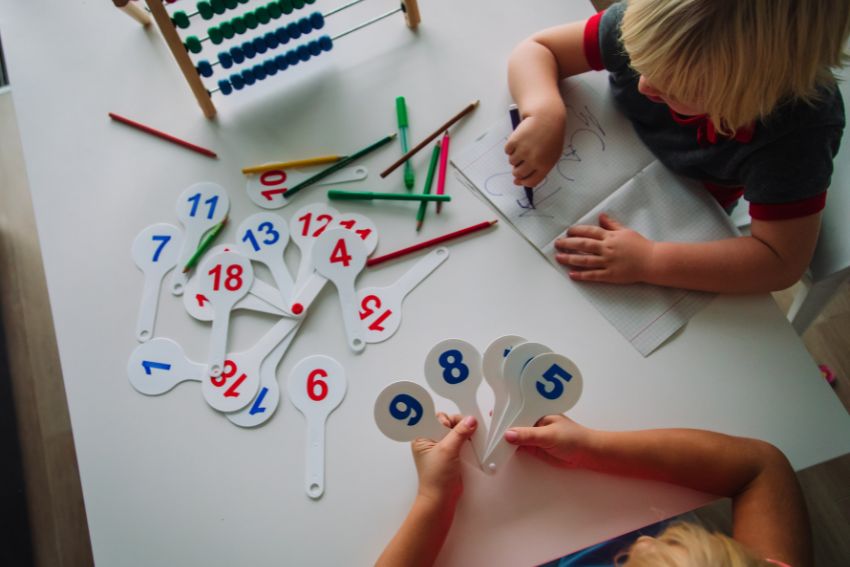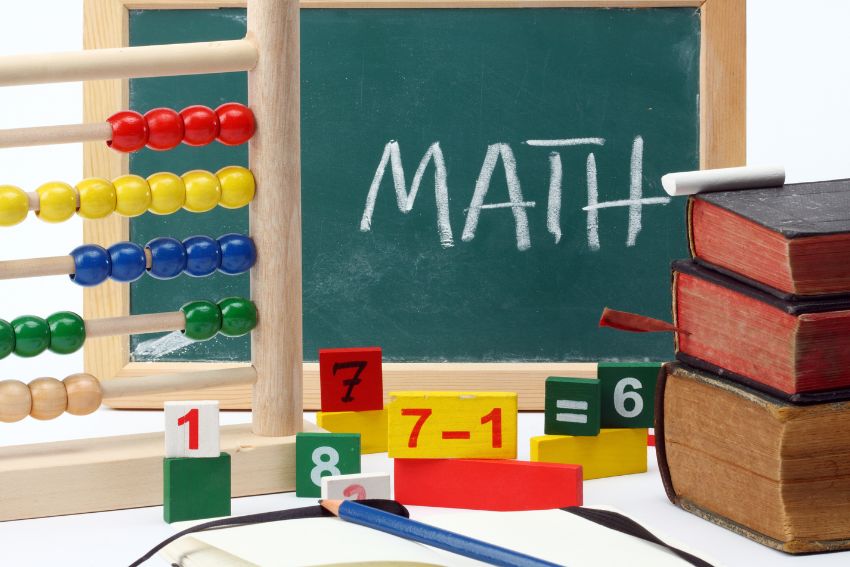How to Help Your Child with Maths: Unlocking true Potential
How to help your child with maths, especially when tackling it during home learning ? Maths can be challenging for children, with struggles ranging from grasping complex concepts to lacking confidence in their abilities. Without the right support, these challenges can become frustrating for both parents and kids.
This blog will offer practical tips and strategies to help you support your child’s math journey. We’ll cover how to identify and address challenges, create a positive learning environment, and use helpful tools and resources. With an appropriate approach, you can help your child build confidence and achieve success in maths.

How to Help Your Child with Maths: Spot and Solve Challenges
When learning how to help your child with maths at home, it’s important to first identify their specific difficulties. Many kids struggle with maths for different reasons, and recognising these issues early can make a big difference.
One common sign is frustration during homework. If your child often feels stuck or avoids maths tasks, it might signal they need extra help. Declining grades or complaints about not liking maths are also clear indicators they are struggling to keep up. By noticing these signs, you can take the first step to support them.
Many children struggle with math anxiety. This happens when kids feel so nervous about maths that it affects their ability to learn. It can make even simple problems feel overwhelming. Understanding that this is a normal reaction helps you offer the right support. Encouraging a calm and positive approach to maths can make all the difference.
By identifying struggles and addressing anxiety, you’re already learning how to help your kids with maths in a meaningful way. The next steps involve finding practical solutions to make learning easier and more enjoyable for them.
How a Positive Math Environment Helps Your Child Learn Better
Now that you’ve started identifying your child’s challenges, it’s time to create a supportive environment for their maths home learning. A positive approach can make a huge difference in how your child feels about learning math.
One great way to help is by encouraging a growth mindset. Instead of focusing on getting everything right, praise their effort and problem-solving process. Let them know it’s okay to make mistakes because mistakes are part of learning. This helps them feel confident and resilient, which are key traits when figuring out how to get better at math.
You can also make yearly years maths learning more fun and relatable by weaving it into everyday activities. For example, involve your child in cooking and ask them to measure ingredients. Or, when shopping, let them calculate totals or figure out discounts. These small, practical tasks can make teaching maths enjoyable and show them how maths applies to real life.
By fostering a positive attitude and showing how learning connects to daily playful maths activities, you’ll create an environment where your child feels excited to learn and improve. This is a big step in helping them succeed in their maths journey.
How to Help Your Kids with Maths Using Educational Resources
In fact, creating a positive environment is just the start. The next step in how to help your child with maths is to use the right tools and resources. These can make maths more engaging and easier to understand for your child.
Interactive math games are a great way to make learning enjoyable and engaging. For example, Prodigy Math Game turns math into an adventure, where kids solve challenges to progress through the game. For younger learners, Numberblocks offers an app with fun videos and activities to teach counting and numbers. These tools make maths for children exciting while helping them build important skills and confidence.
Visual aids and manipulatives are incredibly helpful, especially for younger learners. Tools like number blocks, fraction circles, or simple drawings can make abstract ideas easier to understand. These tools are particularly effective for Early Years Maths Activities to Elevate Maths Learning, as they turn it into a hands-on experience. Visuals help children see and understand mathematical concepts, building a strong foundation for future learning.
Thus, by incorporating engaging games and practical tools into their routine, you can make maths a subject your child looks forward to. It’s all about finding what works best to support their learning style and making the process enjoyable.

Maths Home Learning: Create Study Habits That Work
Once you’ve introduced helpful tools, the next step is creating good study habits. Consistent routines and achievable goals can make a big difference in how to help your child with maths at home.
Start by establishing a routine that works for your family. Set aside a regular time each day for maths practice, even if it’s just 20 minutes. Having a consistent schedule helps your child stay on track and makes maths a regular part of their day. It’s one of the simplest ways to help your kids with maths without overwhelming them.
Setting realistic goals is just as important. Work with your child to create small, achievable objectives, like mastering multiplication tables or completing a set number of practice problems. Meeting these early learning goals will boost their confidence and show them that progress is possible. Celebrate their successes, no matter how small, to keep them motivated.
Therefore, by combining a steady routine with clear goals, you’ll help your child build confidence and develop the discipline needed to improve their skills. These habits will go a long way in answering the question of how to help your child with maths effectively.
Breaking Down Maths Topics: How to Help Your Child Succeed
Once your child has developed strong study habits, it’s time to focus on specific areas of maths. A good starting point in how to help your child with maths is ensuring they have a solid grasp of the basics.
Mastering foundational skills, like addition, subtraction, multiplication, and division, is essential for tackling more advanced topics. Without a strong foundation, it’s harder for children to understand concepts like fractions, algebra, or geometry. Regular practice and review can reinforce these skills and build confidence, especially during maths home learning sessions.
Moreover, teaching problem-solving strategies is another way to support your child’s progress. Show them how to break down problems into smaller steps and look for patterns. Encourage them to ask questions, double-check their work, and stay patient when challenges arise. These strategies are key to how to get better at math and make teaching maths less stressful for both you and your child.
By focusing on foundational skills and effective problem-solving, you’ll give your child the tools they need to approach any math challenge with confidence.

How to Get Better at Math: The Role of Tutors
As you guide your child through their maths journey, remember you’re not alone. Collaborating with teachers and tutors can make a big difference in how to help your child with maths.
Have open conversations with your child’s math teacher. Regular discussions can help you stay informed about their progress, strengths, and areas needing improvement. Teachers can also share helpful tips, resources, and insights to support your child’s maths home learning. By working together, you can ensure your child gets the support they need.
How to Help Your Child with Maths: Personalised Support from Online Tutors
Sometimes, extra help from a tutor can provide the boost your child needs to succeed. If they’re struggling with specific topics or need more one-on-one attention, consider Online Math Tutors. These professionals offer personalised guidance, helping your child understand concepts at their own pace. Online tutoring is especially convenient, allowing your child to learn from home without added stress.
Professional support can also build your child’s confidence and improve their skills. Tutors often use creative methods to explain difficult concepts, making teaching maths less intimidating. If you notice your child falling behind or feeling overwhelmed, reaching out for extra help can be a great step.
Encouraging a Love for Learning: Help Your Kids with Maths
Working with teachers and tutors is important, but your attitude towards maths at home also plays a big role. If you’re wondering how to help your child with maths at home, starting with a positive mindset can make a huge difference.
One of the best things you can do is avoid using negative language while talking about maths. Sharing your own struggles or frustrations, even unintentionally, can influence your child’s attitude. If they hear you say, “I was never good at maths,” they might feel it’s okay to give up. Instead, focus on encouraging words and show them that anything is achievable with practice and effort.
How to Help Your Child with Maths: Celebrate Small Wins
Another way to motivate your child is by celebrating their achievements. Whether they solve a tricky problem, improve their test score, or master a new concept, take a moment to acknowledge their hard work. Small successes build confidence and inspire them to keep going. This is a key step in helping your kids with maths and showing them how to get better at maths.
By staying positive, celebrating their efforts and seeking tutor assistence when needed,, you’ll create a supportive atmosphere for maths home learning. Your encouragement can help your child see maths as a challenge they can overcome, rather than something to fear.

Conclusion
Helping your child with maths is one of the most impactful ways to build their confidence and improve their skills. Whether it’s through creating a positive learning environment, using engaging tools, or developing strong study habits, your support plays a key role in their success. By addressing their challenges and celebrating their progress, you show them that learning maths can be a rewarding journey.
Also, remember, patience and consistency are essential. Every small effort, from helping with homework to introducing early years maths activities, adds up over time. These steps not only make maths home learning more enjoyable but also teach your child resilience and the value of hard work.
With the right approach, your child can move past their struggles and develop a genuine love for learning. Kids Are Learning Math Differently These Days, as they see their progress, they’ll gain the confidence to tackle challenges and succeed in maths and beyond..
Now it’s your turn! Start implementing the strategies shared in this blog and discover how to help your child with maths at home. By taking these steps, you’ll be giving your child the tools they need for long-term success in maths and in life.
FAQs:
How do I help my child who is struggling with math?
Start by figuring out where your child is having trouble with maths. Stay calm and supportive to help build their confidence. Break problems into smaller, easier steps, and use tools like visual aids or math games to make learning simpler. Talk to their teacher to understand
How do you motivate a child in math?
Encourage a growth mindset by praising their effort rather than the outcome. Show them that mistakes are part of learning. Use real-life examples, like cooking or shopping, to make maths relevant and fun. Celebrate their achievements, no matter how small, to keep them engaged. Creating a positive and supportive environment at home is key to motivation.
How to help your child with maths at home?
Set a regular routine for maths practice and keep it stress-free. Use fun tools like apps, games, or hands-on activities to make learning enjoyable. Be patient and open, answering questions kindly and without judgment. Work with their teacher to stay aligned with classroom lessons. Most importantly, show your child that you’re there to support them every step of the way.
How can I teach year 1 math easily?
Teaching Year 1 maths can be simple and enjoyable by using hands-on activities and practical examples. Start with basic concepts like counting, simple addition, and shapes. Use everyday objects, such as toys or snacks, to make learning interactive.
How do you teach math in a fun way?
Incorporate games, puzzles, and challenges to turn learning into a fun experience. Activities like cooking (measuring ingredients) or shopping (calculating discounts) can teach math skills in real-life scenarios. Apps like Prodigy or Numberblocks can make learning enjoyable for kids. The key is to keep it fun and engaging.








